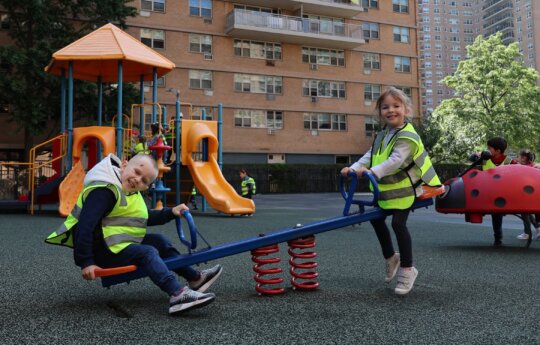
Raising children has always been a journey filled with challenges and rewards, and in today’s world, this journey unfolds in a highly digital landscape. Parenting in a Digital Age requires a fresh set of skills and awareness to navigate the blend of opportunities and obstacles that technology presents. This article aims to explore these facets, offering practical advice on topics like digital etiquette, privacy, online safety, and more.
Understanding the Digital Landscape: Challenges and Opportunities
In this digital era, children are growing up with technology as a fundamental part of their lives. This immersion in technology brings with it a unique set of Digital Age Parenting Challenges. From managing Screen Time Guidelines for Kids to ensuring Online Safety for Children, parents have a lot to consider.
However, this digital world is not just a space of challenges. It offers incredible opportunities for learning, creativity, and connection. By embracing Educational Technology for Young Children and fostering Healthy Digital Habits for Families, parents can turn the digital world into a positive force in their children’s lives.
Digital Parenting Tips: Striking the Right Balance
Digital Parenting Tips are essential in helping parents find the right balance between the benefits and risks of technology. Here’s a look at key areas to focus on:
- Online Safety for Children: Teaching children about the importance of privacy, recognizing inappropriate content, and understanding the concept of digital footprint is crucial. Encourage open conversations about their online experiences.
- Child Digital Etiquette: It’s important to instill digital etiquette in children from a young age. This includes understanding the importance of kindness and respect online, recognizing cyberbullying, and learning appropriate online behavior.
- Kids and Internet Privacy: Educating children about privacy settings and the dangers of sharing personal information online is a must in today’s world.
- Screen Time Guidelines for Kids: Setting clear and age-appropriate guidelines for screen time ensures that children enjoy technology without it becoming overwhelming or addictive.
The Role of Parents: Raising Tech-Savvy Kids
As parents, your role in Raising Tech-Savvy Kids goes beyond setting rules. It involves being actively involved in your child’s digital life. This means understanding the apps and platforms they use, discussing the Impact of Social Media on Children, and setting a positive example with your own digital habits.
Navigating Cyberbullying Prevention and Parental Controls
Cyberbullying Prevention is a critical aspect of online safety. Teach your children how to identify and respond to cyberbullying. Additionally, using Parental Controls and Apps can help in monitoring and managing your child’s online activities, ensuring a safe and age-appropriate digital experience.
Embracing Educational Technology for Young Children
Educational Technology for Young Children can be a powerful tool in early development. From educational apps to interactive games, technology can enhance learning in fun and engaging ways.
Creating Healthy Digital Habits for Families
Developing Healthy Digital Habits for Families is about more than limiting screen time. It’s about using technology to foster connections, learning, and creativity. Have tech-free zones or times at home to encourage non-digital activities and ensure that technology use is balanced with physical activity and real-world interactions.
Conclusion
In conclusion, Parenting in a Digital Age is about guiding your children through the digital world with awareness, involvement, and positive strategies. By focusing on aspects like Digital Etiquette, Online Safety, and Privacy, along with the structured support from programs like Little Scholars, you can prepare your children for a future where they not only navigate the digital world safely but thrive in it.
Discover how Little Scholars can support your family in the upbringing journey. Apply today and take the first step towards empowering your child.




